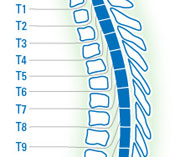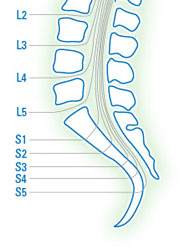Caregiving
Deteremined2Heal Tips:
- Patience and communication are two key essential factors
- Build a friendship based on trust
- Do not put yourself in a position to burn out
- Flexibility is key
- Communication
- Educate yourself as much as you possibly can regarding the person’s condition you’re taking care (click here to learn more about your loved one’s injury level)
Click Here — Learn more about caregiving and watch thousands of SCI videos on SPINALpedia!
|
Click Here — Check out our Bladder Health with a Spinal Cord Injury Pinterest board |
Click Here — Check out our Skincare After a Spinal Cord Injury Pinterest board |
For the Patient
Writing this caregiving section of the website, I feel has been the hardest section to write about. There’s so much that goes into caregiving. Just thinking back since my August 1, 2004 spinal cord injury and about all the things I’ve been through and all the things I’ve accomplished, it’s been because I’ve had someone by my side.
The bottom line is that I’m here today because people have taken care of me. Caregiving ranges from family, friends, and paid employees. Caregivers are people in our lives that are taking care of us and are here because of love. Too often, I take advantage of this love and say things to my caregivers out of frustration.
Frustration is normal when having a spinal cord injury, but what is important is how we release that frustration. When getting frustrated find a little routine to calm yourself down and to reevaluate the situation. I always think of a quote a friend once told me, “It is not what you say, it is how you say it.” And remember, don’t take your anger out on your caregiver; they’re here to help us.
For the Caregivers (a.k.a. family, friends, employees)
When it comes to family and friends, these new caregiving duties can be rewarding, frustrating, time-consuming, and exhausting. Caregiving has its goods and bads, but the main factor that remains the same is that a loved one needs your help. Caregiving is a developed skill, and as time goes on there are certain tricks of the trade that are developed. In order to be the best caregiver that you can be, you need to first be motivated and educated. Educate yourself as much as you possibly can about the person you’re taking care of. The most important thing is to be patient.
As a person with a spinal cord injury, I can tell you that I get frustrated. Understanding that your patient is just frustrated and is not trying to deliberately be mean or rude is the first step to realizing to not take everything so seriously that comes out of the patient’s mouth. Step back mentally and reevaluate the situation. Over exposure and working too long of hours can cause a caregiver to burnout.
Create a balanced, doable schedule that will not burn you out. Work with multiple caregivers that are part of the patient’s life and think about it as though you’re working together as a team. In order for any team to work successfully, communication and reliability need to be the concentrating factors.
Informational Websites
Caregiving resources provided on the Christopher and Dana Reeve Paralysis Foundation.
How to Find the Right Paid Caregiver?
-
Try to interview as many people as you can
-
Put an ad in the newspaper
-
Ask friends
-
Called nursing agencies
-
Ask people at the hospital
-
-
What to look for and what to ask when interviewing? (make sure to take notes while interviewing)
-
Look for someone who is friendly
-
Look for someone who is reliable
-
Look for someone who is flexible
-
Look for someone who is a quick learner
-
What is your name? Where are you from? What is the best way to reach you?
-
Have you ever taken care of someone with a spinal cord injury?
-
What kind of nurse are you/what are your job experiences?
-
Where do you live and how long does it take for you to get here during these specific times?
-
Are you married?
-
How many kids do you have?
-
-
After interviewing as many people as you can, look over your notes and rate who you feel you have the best connection with based upon the specific questions you’ve asked
-
Remember to check for police records (From my knowledge, all agencies that provide nursing care must check for police records on their employees and must notify you of any past infractions, don’t be afraid to ask the agency)













